
Best 7 Tips for Faster Weight Loss (2022 Edition)
You know the feeling – you step on the scale after a long time of hard work and dieting, only to find that you’ve gained weight instead of losing it.
Even worse, sometimes you seem unable to lose those last stubborn few pounds, no matter how many diets or workouts you try.
In this blog post, we will give you the best 7 tips for losing weight quickly and efficiently, so keep on reading to learn more!

Practice Intermittent Fasting
Intermittent fasting is one of the most powerful and effective weight loss tools.
Through years of scientific research, fasting has proven to help burn fat quickly and reverse insulin resistance. Insulin resistance is a significant factor contributing to stubborn fat and weight gain.
Intermittent fasting involves fasting for a certain period during the day, usually 16 to 18 hours, and eating during a specific eating window, for example, an eight or 6-hour window.
16:8 or Time-restricted fasting is the most popular and sustainable intermittent fasting method.
For example, you can eat your last meal at 7 pm the night before and skip breakfast, and eat your next meal at 11 am. Congrats, you just completed a 16-hour fast.
To learn everything about intermittent fasting, click here.
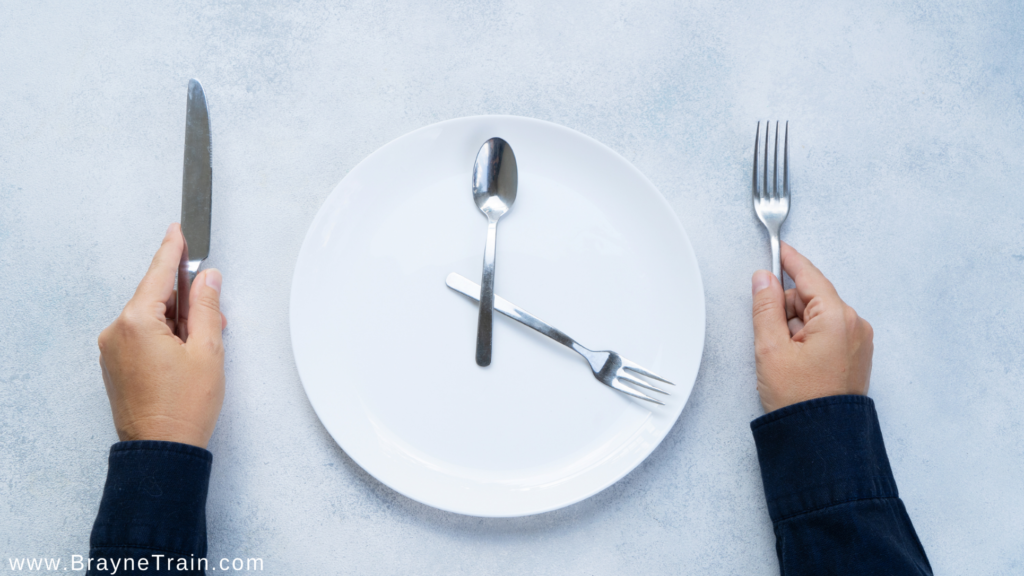
OMAD (one meal a day) fasting is another popular method involving a slightly stricter fasting regimen.
In OMAD, you fast for 23 hours during the day and only eat one meal per day. This is a longer fast and should not be done too frequently, although many do practice OMAD on regular bases.
OMAD can lead to rapid weight loss.
Overall, intermittent fasting represents a natural and highly effective way to lose body fat and achieve your weight loss goals.
To learn everything you need to know about OMAD, click here.

Ketosis
Ketosis is a natural metabolic state where the body burns stored fat for energy.
This process is more efficient than burning carbohydrates, and it produces ketones, which have numerous other health benefits.
Ketosis is often used as a weight-loss tool. It helps the body use fat as the primary fuel source instead of sugar, causing significant fat loss.
A Ketogenic diet, which is low in carbohydrates (usually less than 20g/day) and high in healthy fats (avocado, olive oil, etc.), puts the body into ketosis, usually after 4-6 weeks.
Keto is an effective natural weight loss tool that can help you lose weight fast in a healthy way.
To learn about keto's amazing anti-aging benefits, click here.
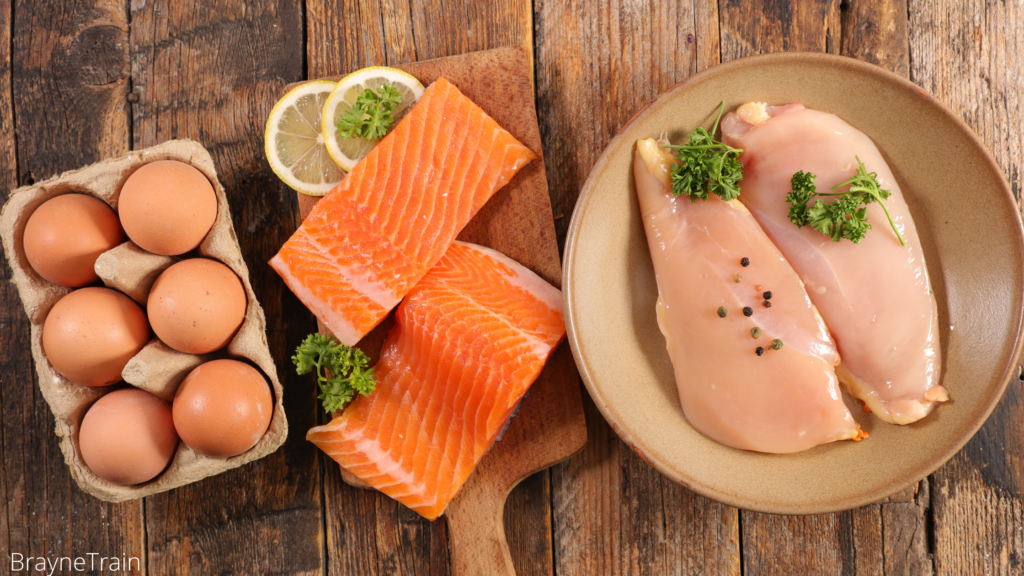
Eat High-Quality Protein
When it comes to weight loss, many people focus on cutting calories.
However, it is important to consider the quality of the calories you are consuming.
High-quality proteins (pasture-raised organic eggs, organic meat, etc.) help you feel satiated for longer periods, which helps lower your cravings and hunger, helping you lose weight faster.
Protein takes longer to digest than other nutrients, so it can help you feel full after a meal.
In addition, protein helps build and maintain lean muscle mass. This is important because muscle burns more calories than fat, even at rest.
What kind and how much protein do you need for weight loss?
- 3-6 oz of protein per meal is recommended.
- Fattier protein cuts are better than lean proteins because they spike less insulin, therefore, helping you burn fat faster and more efficiently.
- Best Protein examples: Salmon, pasture-raised eggs, fatty fish, sardines, seafood, pork, 80% lean hamburger.
To learn more about getting rid of cravings and food addiction, click here.
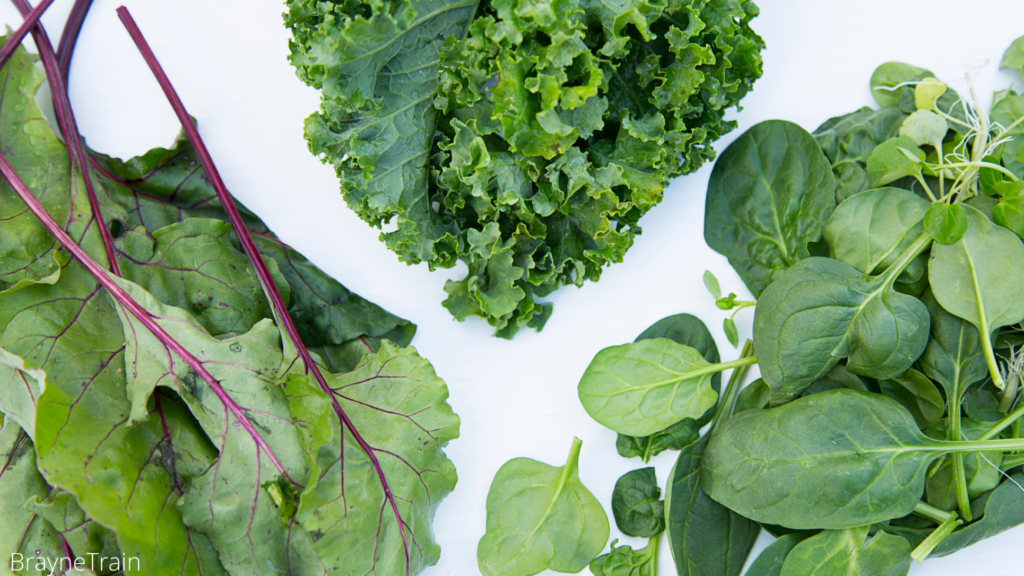
Eat lots of Leafy Greens
Leafy greens help keep you satiated and lose weight.
The fiber in leafy greens helps feed your stomach microbes, turning the leafy greens into butyrate, a type of fatty acid, which allows you to lose weight and burn fat faster!
- Seven cups of leafy greens per day are recommended.
- Avoid corn, tomatoes, peas, carrots, squash, beets, and starchy vegetables.
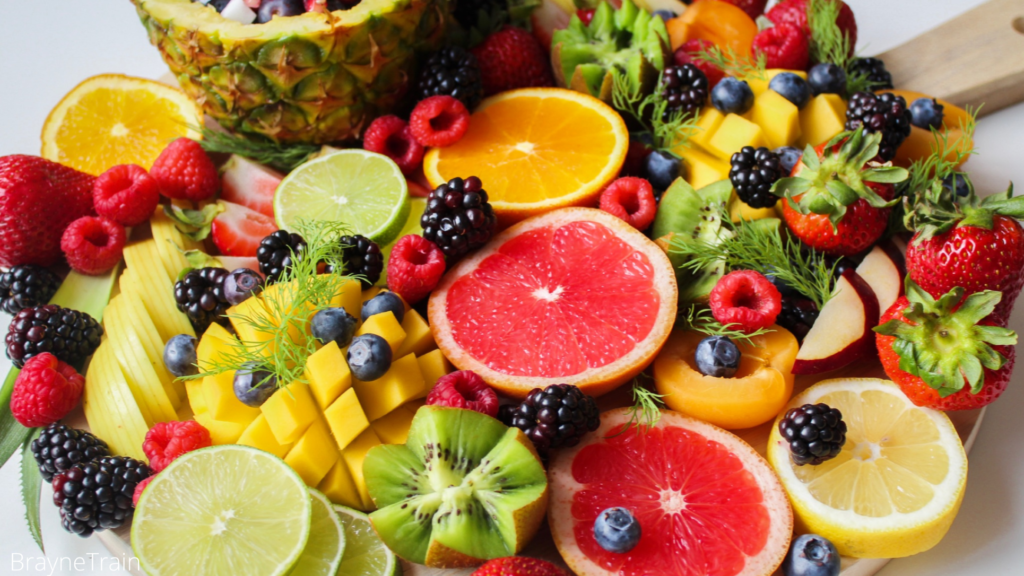
Cut out Fruits
Fruits are not bad. In fact, the human body is designed to consume fruits and metabolize them well. A small portion of fruits is actually a great addition to a healthy diet.
However, when it comes to weight loss, fruits can create a problem.
Fruits contain fructose, a type of sugar.
Studies have shown that the liver prioritizes fat accumulation from fructose over glucose. This means Fructse consumption leads to increased visceral fat accumulation
Although a limited amount of berries is usually healthy for weight loss, it’s best to cut out all fruits temporarily, if you want to speed up your weight loss results.
- An exception in the fruit category is Avacado. Avocados are great for weight loss.
To learn about ways you can lose weight quickly without exercise, click here.
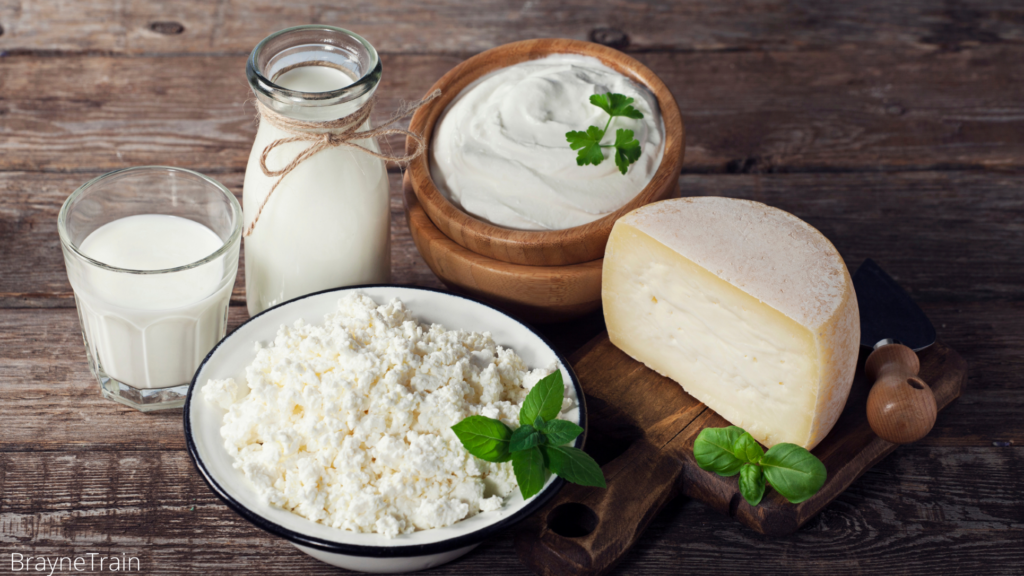
Cut out Dairy
Lactose is the sugar in dairy products and has been shown to raise blood sugar and insulin levels, leading to weight gain in some individuals.
In fact, studies have found that consuming dairy products regularly can increase body fat.
In addition, dairy is a common trigger of inflammation. Dairy products contain casein, a protein that can trigger an inflammatory response.
When casein is digested, it produces casomorphins, known to have an inflammatory effect on the body.
Dairy can also cause hormonal imbalances, leading to insulin resistance, PCOS, and other hormonal problems, which can cause weight gain.
So if you are trying to lose weight, it’s best to cut dairy out of your diet for a while; you might feel much better once you do so.

HIIT
HIIT, or high-intensity interval training, is an extremely effective way to lose weight and improve health.
This type of exercise regime involves alternating short bouts of intense activity with periods of rest or lower-intensity exercise.
By engaging multiple muscle groups at once and increasing your heart rate to a high level, HIIT optimizes fat loss and helps you get the most out of your workouts.
Try practicing HIIT 2 or 3 times per week for the best weight loss results.
Bonus Tip: Meditate
Meditation is a proven method for lowering stress and reducing cortisol levels in the body.
Cortisol is a hormone produced by the adrenal glands in response to stress. It is responsible for many of the adverse effects stress has on the body.
High cortisol levels have been linked to weight gain, sleeplessness, mood swings, and difficulty concentrating.
By practicing meditation regularly, you can effectively lower your stress levels and minimize the effects of cortisol on your body.
Meditation can also help you become more mindful of your eating habits and make better choices when it comes to food.
To learn more about ways you can reduce your stress and anxiety, click here.
Takeaway
The best way to lose weight is not a one-size-fits-all solution. Different people will respond differently to different methods, so it’s important to experiment until you find what works for you and your body. We hope that the tips and tricks we shared in this post have helped get you started on your weight loss journey. Thank you for reading!
Disclaimer: When it comes to losing weight or making dietary changes, it is always important to consult with your doctor first. Your doctor can help you determine what types of diet and fasting plans are best suited to your individual health needs.
References
Sun SZ, Empie MW. Fructose metabolism in humans – what isotopic tracer studies tell us. Nutr Metab (Lond). 2012;9(1):89. Published 2012 Oct 2. doi:10.1186/1743-7075-9-89
Geoffrey Livesey, Richard Taylor, Fructose consumption and consequences for glycation, plasma triacylglycerol, and body weight: meta-analyses and meta-regression models of intervention studies, The American Journal of Clinical Nutrition, Volume 88, Issue 5, November 2008, Pages 1419–1437, https://doi.org/10.3945/ajcn.2007.25700
Cozma AI, Sievenpiper JL, de Souza RJ, Chiavaroli L, Ha V, Wang DD, Mirrahimi A, Yu ME, Carleton AJ, Di Buono M, Jenkins AL, Leiter LA, Wolever TM, Beyene J, Kendall CW, Jenkins DJ. Effect of fructose on glycemic control in diabetes: a systematic review and meta-analysis of controlled feeding trials. Diabetes Care. 2012 Jul;35(7):1611-20. doi: 10.2337/dc12-0073. PMID: 22723585; PMCID: PMC3379616.
Baena M, Sangüesa G, Dávalos A, Latasa MJ, Sala-Vila A, Sánchez RM, Roglans N, Laguna JC, Alegret M. Fructose, but not glucose, impairs insulin signaling in the three major insulin-sensitive tissues. Sci Rep. 2016 May 19;6:26149. doi: 10.1038/srep26149. PMID: 27194405; PMCID: PMC4872141.




